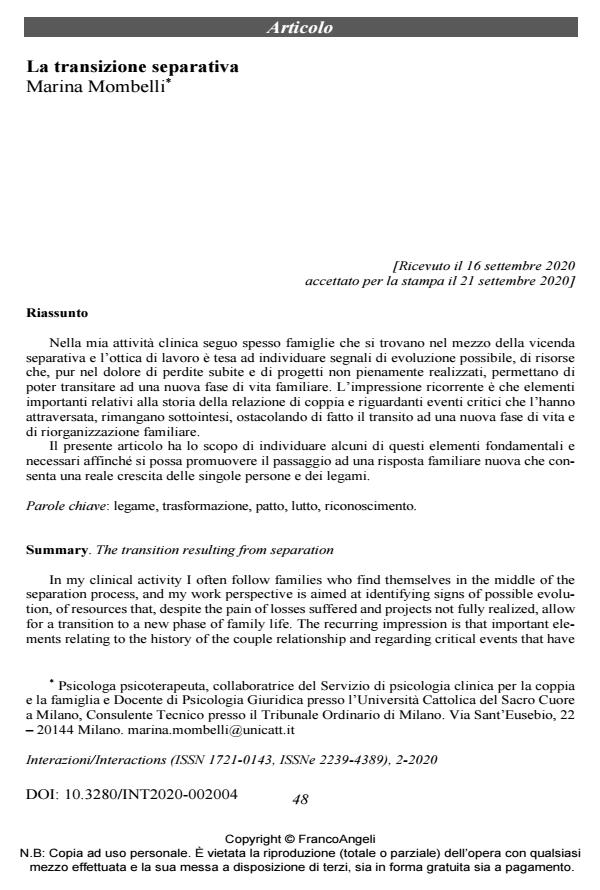The transition resulting from separation
Journal title INTERAZIONI
Author/s Marina Mombelli
Publishing Year 2020 Issue 2020/2
Language Italian Pages 14 P. 48-61 File size 197 KB
DOI 10.3280/INT2020-002004
DOI is like a bar code for intellectual property: to have more infomation
click here
Below, you can see the article first page
If you want to buy this article in PDF format, you can do it, following the instructions to buy download credits

FrancoAngeli is member of Publishers International Linking Association, Inc (PILA), a not-for-profit association which run the CrossRef service enabling links to and from online scholarly content.
In my clinical activity I often follow families who find themselves in the middle of the separation process, and my work perspective is aimed at identifying signs of possible evolu-tion, of resources that, despite the pain of losses suffered and projects not fully realized, allow for a transition to a new phase of family life. The recurring impression is that important ele-ments relating to the history of the couple relationship and regarding critical events that have gone through it, remain tacit, hindering the transition to a new phase of life and family reor-ganization. The purpose of this article is to identify some of these fundamental and necessary elements so that we can promote the transition to a new family response that allows for a real growth of individuals and ties. .
Keywords: Llink, transformation, pact, grief, recognition
Marina Mombelli, La transizione separativa in "INTERAZIONI" 2/2020, pp 48-61, DOI: 10.3280/INT2020-002004